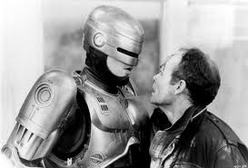Before the introduction of agriculture, homo sapiens simply did not have the luxury of frequent feedings. For the most part, “Man the Hunter” would hunt and “Woman the Forager” would forage throughout the day, and if they were lucky enough, they’d feast on the nuts, seeds, roots, shoots, tubers, and meats of their labor at night.
IF they were lucky enough…
Is it then a coincidence that this cyclical eating pattern of “fasting” during the day and “feasting” throughout the night is almost perfectly congruent with the division of our autonomic nervous system into sympathethic (our vigorous daytime nervous system) and parasympathetic (or relaxed nighttime nervous system)?
Not hardly. Cyclicality was all in the grand design of nature and evolution.
Yet somewhere along the line, we really screwed things up, at least from a nutritive point of view.
Our distinctive capabilities of thinking, learning, reasoning, socializing, and planning has essentially granted us the ability to live off of anything that we can bite.
We have discovered how to filter poisons from nuts, cook down tough and toxic substances to render them edible, mush up bones and boil them for marrow, and ultimately, grow and distribute thousands of domestic (and often toxic) crops that provide the utility of frequent and hearty feedings.
Some notable accomplishments to say the least; way to go, hominids!
I mean, we even figured out how to domesticate other life forms (such as yeast and bacteria), which has led to the second greatest creation of all time:
Beer.
However…
Just because we CAN do something doesn’t necessarily mean we SHOULD do something!
For example, just because I, homo sapien, can make beer doesn’t necessarily mean that I should drink beer.
Just because I, homo sapien, can harvest grains doesn’t necessarily mean that I should eat grains.
Just because I, homo sapien, can make a thermonuclear bomb that could manifest an everlasting hell on earth doesn’t necessarily mean that I should make a thermonuclear bomb that could manifest an everlasting hell on earth.
See where I’m going with this?
Regardless, some folks will just decide that they still WANT to and WILL anyways. But we’ll just leave them to their own devices. Thermonuclear or whatever have they.
I was first exposed to the concept of “one meal a day” by Ori Hoffmeckler in 2006 and have since become a huge proponent of this eating philosophy, adding a few tweaks and twists of my own. If you have not read Ori’s book The Warrior Diet (a truly tremendous piece of literature), please do so presently, as he is one of very few nutritionists for whom I have the utmost respect and admiration.
As we dive into this contrarian eating philosophy, I want you to keep three things in mind:
1. There will surely be people who will lash out (either verbally or through the interwebs) against what I’m about to present, simply because it’s incongruent with their current belief system. These people suffer from a confirmation bias, and so long as they only favor information that reaffirms their current credence, they will always be stuck. Will you be one of those people?
2. If you only do what you’ve done, then you will only ever have what you’ve got. I didn’t necessarily like how it felt when I found out I was doing everything wrong, but I am better now because I actually did something about it.
3. “Everything popular is wrong” – Oscar Wilde
Before I dive into the nitty grittys, let’s first call upon my good friend, Dr. Obvious, to be our educator.
One of the primary fallacies of mainstream nutrition today is the notion that we need food, particularly carbohydrates, to provide us with fuel to use throughout the day, and without this steady stream of fuel, we will fall into this dark, nebulous void known as “starvation mode”.
Well, if it looks like BS and smells like BS…
(BIll O’Reilly may have the “No Spin Zone”, but I got the rights to the “No BS Zone”)
1. Humans are machines.
2. Carbohydrates, or glucose, is our primary fuel source, and can only be obtained through the consumption of exogenous carbohydrates.
Humans are not machines. Robocop is a machine. Well, technically he’s HALF machine and runs off an organic baby food-like paste.
The human body is an adaptive organism, NOT a sea-green 1993 Ford Taurus or a Robocop.
Believe it or not (and I know this is a hard concept for the majority Americans to wrap their heads around, seeing as how the only thing they hold more often than the remote is the fork), but even if you were to completely refrain from food for a week (assuming there are no overriding health conditions)… you’d still be alive at the end of those seven days!
Unless you got hit by a bus or something.
Ghandi, at the young age of 71, survived for 21 days only sipping on water! And you’re afraid of skipping a meal?
“Starvation mode” is a myth. At least as it is most commonly portrayed.
True adaptive thermogenesis is brought about from a prolonged period of low energy intake or severe lack of nourishment.
“Taking a break” from eating, preferably from when you wake up until dinner time, is NOT a prolonged period by any stretch of the imagination. In fact, it’s a relatively short period of time in the grand scheme of things, and one in which your body will burn fatty acids as its primary energy source, rather than glucose.
Which brings me to my next point…
Again, calling Dr. Obvious…
Please answer the following questions for me. Or you can just cheat and look at the answers written below them. I don’t care.
Q. What happens when you take all fat out of your diet?
A. You die.
Q. What happens when you take all protein out of your diet?
A. You die.
Q. And what happens when you take all carbohydrates out of your diet?
A. You don’t die.
Hmm.
…And some would even argue you that you thrive, but I have my reservations about completely eliminating carbohydrates, which I’ll address in another post.
Here’s yet another redundantly redundant observable observation…
If carbohydrates, not fat, are supposed to be our primary energy source, as the majority of mainstream nutritionists and fitness “experts” would have you believe, then why is it that every human has the ability to store pounds upon pounds of body fat, yet is limited to storing only about 500 total GRAMS of carbohydrates (in the form of glycogen) at any given time?
If carbohydrates (glucose) were truly meant to be our primary fueling mechanism, shouldn’t those storage systems be reversed?
The reason so many people are so freaking fat (over 60% of Americans are now overweight) is not only due to their disastrous food choices but also their inability to put the fork down, take a much needed break from eating, and mobilize their stored body fat for energy!
Our sympathetic nervous system is specifically designed so that during the day we are able to mobilize fatty acids out of our fat cells and into the bloodstream to fuel our activities. This steady stream of “fatty firewood” allows for stable energy levels (no blood sugar spikes or midday crashes), lessens hunger pangs (eventually…), and will liberate life from fork.
#hotdamn.
And what you really need to know is that every time you put food substance into your mouth (more specifically, carbohydrate substance), you immediately shut the fat-burning system down or at least inhibit it to some degree. Our sympathetic nervous system, and all of the incredible aforementioned benefits, are stimulated from a LACK of food, not an abundance of!
“But I thought eating often speeds up your metabolism?”
Think again dingbat!
The classic 4-6 meals a day does not “speed up” your metabolism any more than dumping endless buckets of water on a seedling makes it grow any faster. In fact, doing so would cause more harm than good, both for you and the plant.
Your “metabolism” occurs at the mitochondria and/or the cytoplasm and is the entire set of chemical processes that transpire within a living organism to sustain life. It’s just not as simple as “speeding it up” or “slowing it down.” Everything is connected and everything matters when it comes to our metabolism, including both the timing and frequency of our meals (or for the purpose of this article, meal) and the quality of the food that we eat. It would greatly behoove folks to seek out a “healthy” or “efficient and effective” metabolism, rather than just a “fast” metabolism, the latter of which is really just semantic garbage anyways.
PPS – To melt body fat like faw meat on a hot grill, apply the knowledge above to our Birth of a Hero program!
PPS – I’m sure there will be plenty of questions, please post them in the comment section below. Also, if you enjoyed this post, please “like” it and share!







